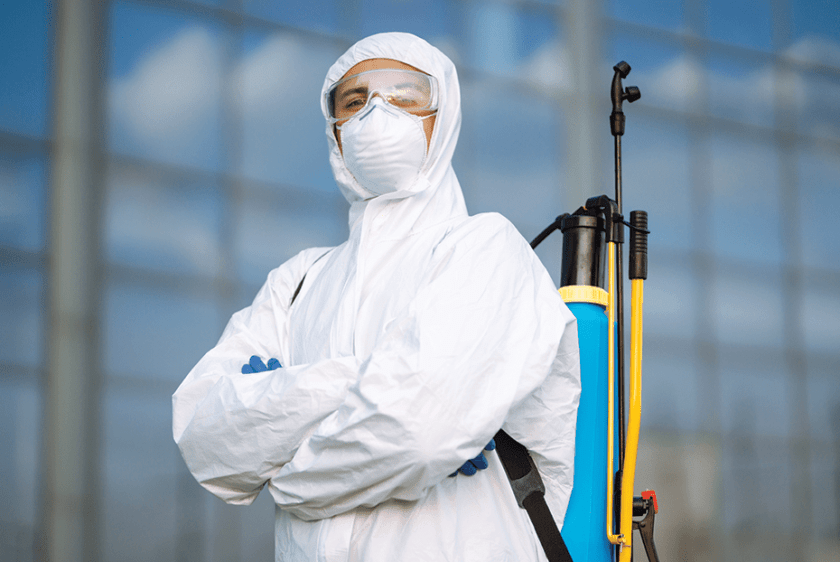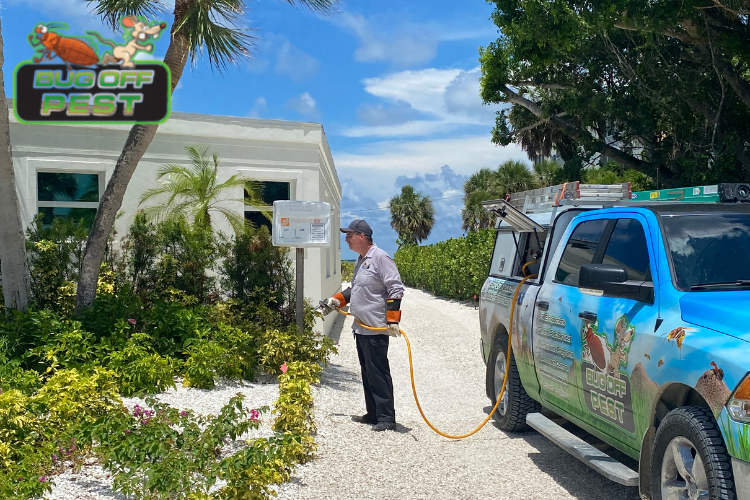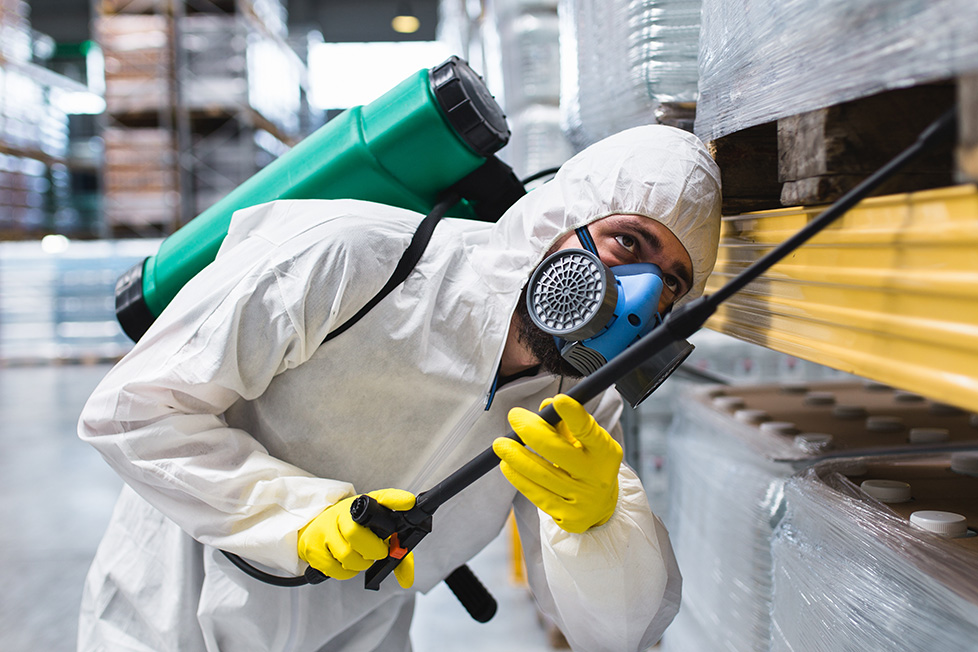Reliable Pest Control in Port Charlotte to safeguard your home.
Reliable Pest Control in Port Charlotte to safeguard your home.
Blog Article
Discovering Innovative Strategies and Products for Effective Bug Control
The landscape of bug control is evolving, noted by the emergence of innovative techniques and items made to boost efficiency and sustainability. From smart traps geared up with advanced surveillance systems to organic methods that use natural predators, these innovations provide a paradigm change in just how we approach pest administration.
Smart Traps and Monitoring Solutions
Exactly how can modern-day innovation enhance insect management? One significant development is the development of smart catches and keeping track of systems, which provide real-time data and analytics for effective pest control. These systems use sensors and cordless modern technology to identify parasite task, alerting residential or commercial property supervisors and parasite control specialists to problems before they escalate.
Smart catches are furnished with features such as bait terminals that bring in insects and catch them successfully. These catches can be kept track of remotely, permitting prompt treatments and lessening the demand for substantial chemical applications. The assimilation of maker learning algorithms enables these systems to separate between target parasites and non-target types, boosting the precision of parasite control steps.
Furthermore, the information gathered from clever traps can be evaluated to identify patterns in pest habits and ecological aspects adding to invasions (Pest Control in Port Charlotte). This details is invaluable for establishing targeted bug monitoring strategies customized to particular atmospheres. By embracing smart traps and checking systems, bug control specialists can improve their operational effectiveness and lower the ecological influence of parasite administration, ultimately causing more secure and extra sustainable practices in the industry
Organic Bug Control Methods
Making use of all-natural killers and bloodsuckers, organic pest control methods supply an environmentally friendly option to chemical therapies. This strategy includes the intro or improvement of particular microorganisms that can normally control parasite populations, therefore reducing reliance on synthetic chemicals. Common examples include using ladybugs to control aphid problems and parasitical wasps to target caterpillars.

Biological control can be classified into three main techniques: timeless, augmentative, and conservation. Timeless organic control includes importing all-natural adversaries from the bug's indigenous environment, while augmentative control includes raising the populace of existing all-natural adversaries through launches. Conservation strategies concentrate on producing problems that support these helpful microorganisms in the ecosystem.
The effectiveness of biological pest control depends upon recognizing the intricate communications within communities. It often needs an extensive assessment of parasite dynamics and the life cycles of both the bugs and their all-natural opponents. While biological techniques may not provide instant outcomes like chemical alternatives, they contribute to long-term pest administration and ecological community health. As awareness of environmental problems grows, organic insect control methods are progressively recognized for their lasting role in incorporated insect management programs.
Eco-Friendly Chemical Alternatives
Environmentally friendly chemical choices provide a feasible remedy for pest administration that lessens ecological impact while efficiently managing pest populations. These alternatives are originated from all-natural sources and are thoroughly developed to target certain pests without damaging useful microorganisms, making them an essential component of lasting parasite control techniques.
Among one of the most effective environment-friendly alternatives are plant-based insecticides, such as neem oil and pyrethrin, which are obtained from the seeds and flowers of various plants. These compounds disrupt the life process of pests, minimizing their populaces without the poisonous results related to standard chemicals - Pest Control in Port Charlotte. Additionally, vital oils like peppermint and clove oil show repellent residential properties, additionally enhancing their utility in pest monitoring

In addition, environment-friendly chemical choices often damage down quicker in the setting, lowering the danger of soil and water contamination. This characteristic aligns with the enhancing consumer demand for lasting techniques in agriculture and metropolitan pest control. As study proceeds to breakthrough, the development of cutting-edge eco-friendly formulations will certainly additionally improve effectiveness and expand application areas, enabling pest administration specialists to take on greener, much more responsible techniques in their techniques while protecting human health and wellness and the atmosphere.
Scent Interruption Strategies
Another ingenious method in lasting pest management is the usage of scent interruption techniques. These techniques make use of the all-natural chemical signals, or scents, that bugs make use of for interaction, especially in breeding actions. By interfering with these signals, insect populaces can be efficiently taken care of without resorting to hazardous chemicals.
Scent catches are generally employed in this method. Over time, this can lead to a significant decrease in bug populations.

Integrated Parasite Monitoring Methods
Efficient parasite control often needs click to investigate a detailed strategy, and Integrated Pest Management (IPM) methods provide a framework for achieving this goal. IPM incorporates numerous monitoring techniques to minimize pest populaces while reducing dependence on chemical pesticides. This diverse approach starts with extensive monitoring and recognition of parasites, permitting targeted treatments based on particular pest stress.
Cultural techniques, such as plant turning and sanitation, play a vital role in avoiding bug facility. Organic controls, consisting of natural killers and parasitoids, are used to keep bug populations at manageable degrees. When essential, careful chemical therapies are used, stressing reduced toxicity to non-target types and the setting.
By employing this all natural approach, IPM not only boosts pest control performance but additionally contributes to lasting ecological equilibrium. Eventually, Integrated Pest Monitoring represents a forward-thinking solution that straightens agricultural productivity with environmental stewardship, making it crucial in contemporary parasite control techniques.

Conclusion
In verdict, the assimilation of cutting-edge techniques and items for efficient parasite control represents a substantial improvement in top article sustainable pest management. Smart catches and keeping track of systems, biological pest control approaches, environmentally friendly chemical options, and scent best site disruption methods jointly boost the effectiveness of parasite monitoring approaches.
Report this page